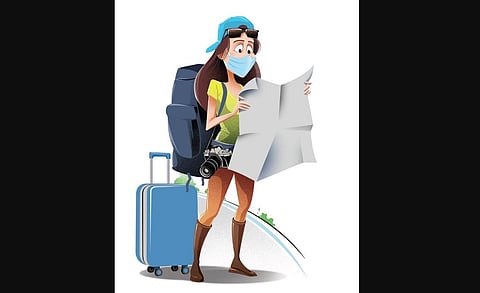

While the travel and hospitality sector got a special mention in Finance Minister Nirmala Sitharaman’s budget speech as part of the Emergency Credit Line Guarantee Scheme (ECLGS), which has been expanded by Rs 50,000 crore, it may be too little to bring any major relief to the Covid-hit sector.
Gurbaxish Singh Kohli, Vice President, Federation of Hotel & Restaurant Associations of India (FHRAI), said that the extension of the ECLGS scheme is just a drop in the ocean for a sector that has been severely battered. Given the massive damages that decimated the entire sector’s ecosystem, these measures are not adequate to bridge the losses and offer impetus to the hospitality and tourism industry, he said.
"The number of meetings we held with the Finance Ministry and other ministries led us to believe that they were surely going to announce some sort of specific relief for the industry but it is a huge disappointment that it has not come through," added Kohli.
The Indian hotel industry alone has taken a hit of over Rs 1.30 lakh crore in revenue for the fiscal year 2020-21 due to the impact of the COVID-19 pandemic, the FHRAI had said last year. Early this fiscal, the industry faced another blow with the delta wave and since late December the industry is facing low demand due to the omicron variant.
"The Union Budget provides some relief and medium to long term infrastructure measures to stressed tourism travel & hospitality industry, but there was an immediate opportunity for more direct intervention to support the highly stressed tourism travel and hospitality companies and their employees," said Nakul Anand, Chairman, FAITH (Federation of Associations in Indian Tourism & Hospitality).
According to FAITH, additional support measures could have come through measures such as abolishment of TCS on outbound travel to prevent travel expenditure shifting from Indian travel companies to offshore travel companies, infrastructure status to hotels irrespective of their location or capital size to support capex growth and e-visa fee waiver for all tourist visas for 2022 and beyond to support inbound revival.
KB Kachru, VP, Hotel Association of India (HAI) and chairman emeritus and principal advisor, South Asia at Radisson Hotel Group, said the announcement recognises the distress in hospitality, but the specifics need to be studied to better understand the impact on specific businesses and organisations. HAI has been requesting that the scheme be customised and tailored to suit the unique hotel business model and future outlook for the sector.
The Indian Association of Tour Operators (IATO) said that none of its requests were considered in the budget.
Rajiv Mehra, President IATO, said, “We had requested one-time grant based on our 2019-20 turnover, reduction in GST, restoration and enhancement of SEIS benefit, reducing taxes on international airfares and overall reduction of taxes on the hospitality sector. Most disappointingly none of these found mention in the budget presented." Mehra adds, “There has been huge employment loss besides financial loss in our sector. Just a few years ago, we were earning huge foreign exchange for the government and in this hour of despair we expected some hand holding by it."
Mandeep Lamba, president, South Asia, at HVS Anarock said the ECLGS announcement was a welcome move but said that the industry again will have to defend itself. "A greater focus on infrastructure investments, notably road development and ropeways that will enhance connectivity in hilly areas would help the tourism sector make some strides. However, the hospitality sector, which was one of the hardest impacted by Covid, a fact well acknowledged by the government repeatedly, has once again been left to fend for itself," he said.